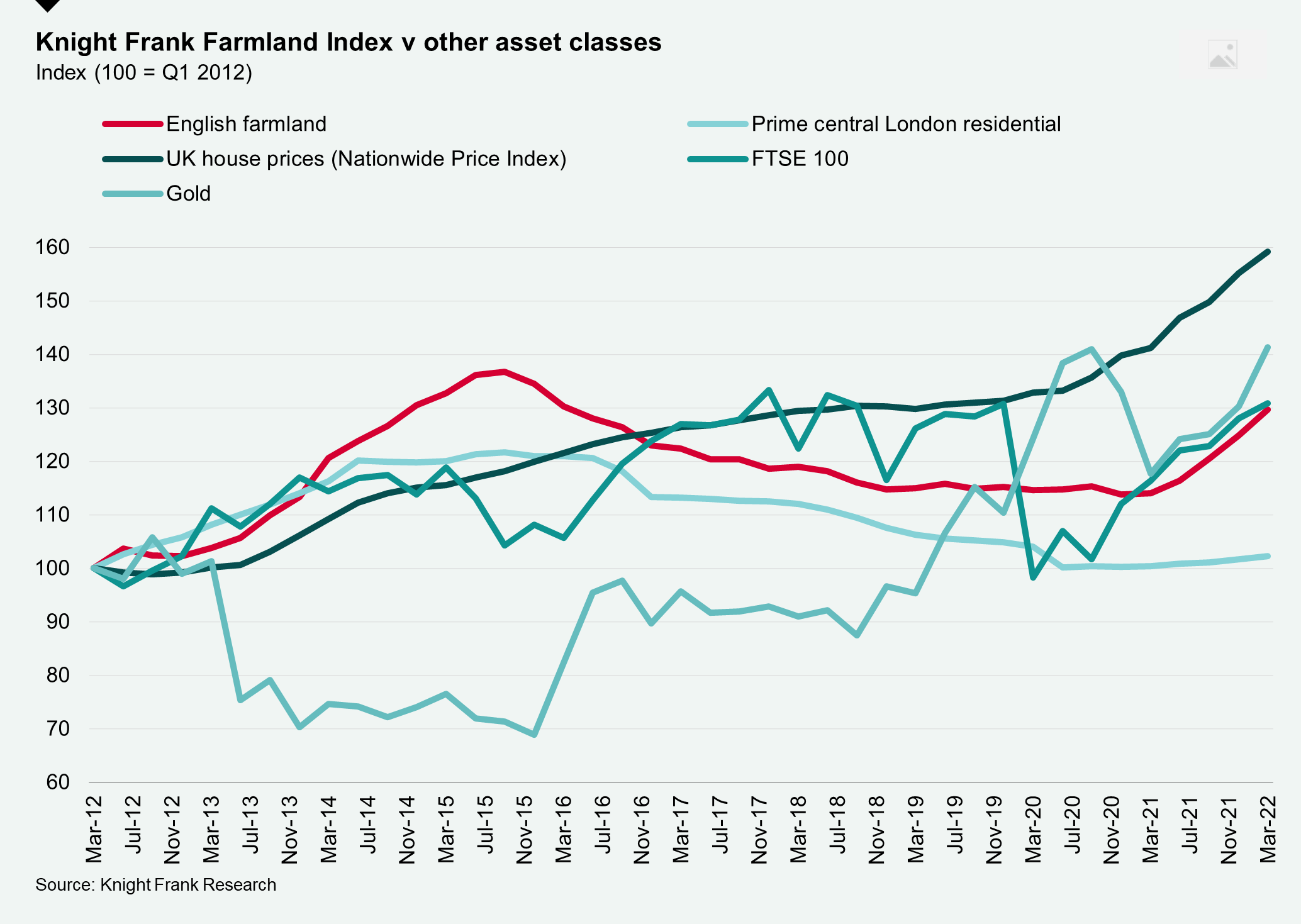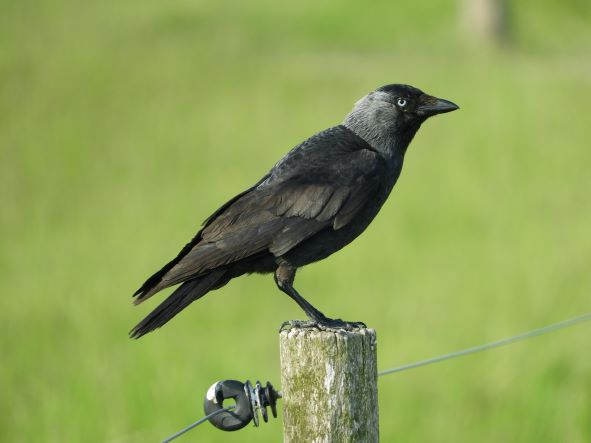Fertiliser plan, Scottish land register, Farmland boost
The Knight Frank Rural Property and Business Update – Our weekly dose of news, views and insight from the world of farming, food and landownership.
5 minutes to read
Defra minister George Eustice must often feel like a man trapped between a rock and a hard place. His modest plan announced last week to help mitigate some of the impact of spiralling fertiliser costs on UK agriculture received flak both from environmentalists who hate the use of artificial nitrogen and from farmers who pointed to the more robust support measures being adopted in the EU. While some sympathy is perhaps warranted, it is hard not to feel that the government’s perceived narrow focus on environmental matters over recent years has led to a feeling of disenfranchisement in the farming community. As I’ve stated a number of times, a more holistic approach to food and farming policy should help reduce some of those tensions.
The Rural Update will be taking an Easter break next week, but do get in touch if we can help in any way
Andrew Shirley, Head of Rural Research
In this week’s update:
- Commodity markets – Glimmers of hope for pork and milk
- Farmland market – Scarcity continues to drive values
- Fertiliser crisis – Government reacts
- Scottish land – New ownership register introduced
- Pest control – Welsh corvid kerfuffle
- The Rural Report – Sign up to watch our ground-breaking video
- Overseas news – Bid to scrap US farmland renewable tax breaks
Commodity markets – Glimmers of hope for pork and milk
Feed and energy costs are still crippling the sector, but pork prices did enjoy a much-needed rise last week. In the week ending 26 March, values, according to the AHDB, jumped 5p/kg to average 147/kg. This is the largest weekly rise recorded since 2014. The slaughter of clean pigs at GB abattoirs was estimated to be 192,300 head, 3% below numbers during the same week a year ago. There was also good news for some dairy farmers. As reported in Farmers Weekly magazine, both Tesco and processor Muller have announced that farmers supplying them will receive 40.84p and 40p/litre from May, respectively.

Farmland market – Scarcity continues to drive values
The average value of bare agricultural land in England and Wales rose by a further 4% in the first quarter of 2022, according to the latest findings from the Knight Frank Farmland Index. This takes the total gain over the past 12 months to 14%, the strongest performance since 2014 just before the market peaked. A continued lack of supply and firm demand are helping to support values. Read the full report to find out more.

Fertiliser crisis – Government reacts
Defra has announced a package of measures designed to support farmers hit by spiralling nitrogen costs. They include delaying a proposed ban on the use of urea and removing the prohibition on spreading organic manures during the autumn. There is also more cash for research into husbandry techniques that are less reliant on artificial fertilisers, as well as grants to help farmers increase their slurry storage capacity and support to grow more nitrogen-fixing crops.
Environmentalists have criticised the urea delay, while some farmers are pointing to the more direct support producers on the continent are receiving to cut their fertiliser bills.
Scottish land – New ownership register introduced
A new Register of Persons Holding a Controlled Interest (RCI) in land came into effect in Scotland from 1st April.
This public register provides key information about those who ultimately make decisions about the management or use of land, even if they are not necessarily registered as the owner, including overseas entities and trusts.
Environment and Land Reform Minister, Mairi McAllan said: “I want to ensure that there can no longer be categories of landowner or tenant where, intentionally or otherwise, control of decision-making is obscured, including in or via overseas trusts or entities. We have committed to bring forward a new Land Reform Bill over the course of this parliament which will further tackle Scotland’s historically iniquitous patterns of land ownership and use.”
Penalties for non-compliance will come into force at the end of a 12-month transition period in April 2023.

Photo above by Roman Klimenko on Unsplash
Pest control – Welsh corvid kerfuffle
From 1st July, farmers and estate owners in Wales will no longer be able to control jackdaws, magpies and jays under General Licence GL004 following a new ruling from Natural Resources Wales. Instead, they will need to apply for specific licenses.
BASC has described the extra bureaucracy as a “retrograde blow for conservation”. Steve Griffiths, the organisation’s Wales director, said: “It is an ill-judged approach. NRW is introducing needless red tape that makes it more difficult to control these known predatory species. It is a deeply damaging move for conservation in Wales.
“The bureaucracy required to apply for these individual licences can take months to navigate. That means there will be damage inflicted on species that are of conservation concern in Wales, such as curlew.”
The Rural Report – Sign up to watch our ground-breaking video
The latest edition of The Rural Report, our unique publication for rural landowners and their advisors, was launched with a video highlighting some of its key content around the topic of ESG. If you missed it, you can sign up to watch on demand at your leisure. It was a lot of fun making it and includes a thought provoking interview on diversity, with Wilfred Emmanuel-Jones AKA The Black Farmer. I think you’ll find it both entertaining and informative.
Sign up to watch The Rural Report launch video
Overseas news – Bid to scrap US farmland renewable tax breaks
As I have discussed before there is growing tension about what farmland should be used for. The spike in food and energy prices caused by the war in Ukraine has added heat to that debate. In the US, for example, some politicians such as Wisconsin Congressman Tom Tiffany are sponsoring a new bill that calls for tax breaks for renewable energy projects on farmland to be scrapped. Contrary to received wisdom they argue that solar and wind schemes do little to bolster energy self-sufficiency and harm food production.
Main by Mikk Tõnissoo on Unsplash